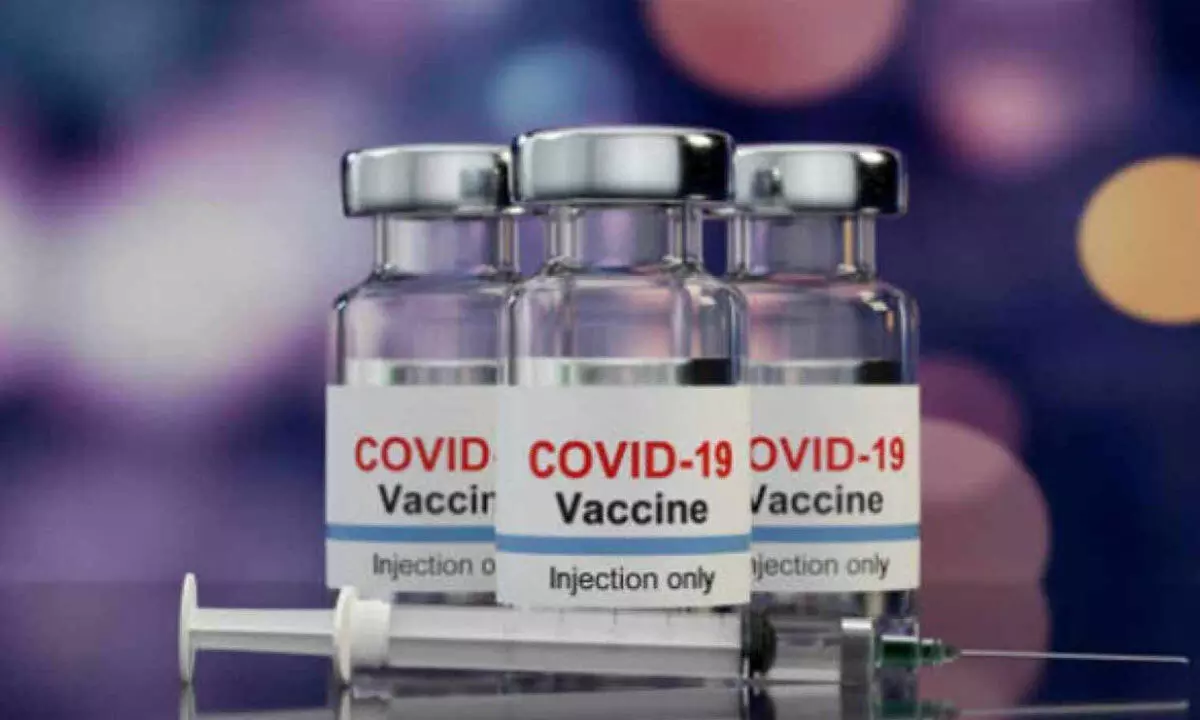WTO patent waiver is the need of the hour

WTO patent waiver is the need of the hour
The patent waiver for vaccines and related diagnostics will help poor countries tackle future pandemics with enough vaccines and drugs to protect their people
The forthcoming ministerial conference of the World Trade Organisation will have an item on the agenda that should be a priority for the entire world. And that is the patent waiver for vaccines and related diagnostics needed to tackle a pandemic like Covid 19. The proposal for a special waiver was presented 18 months ago by India and South Africa to the multilateral trade body and it is still awaiting a decision. Text-based negotiations are currently underway on revised proposals submitted by rich countries but the outcome must suit poorer countries for whom the waiver will be a lifeline during a pandemic.
What is amazing is that despite the havoc wreaked over the past two and half years by Covid 19, the North has not yet conceded that emergent measures are needed to provide vaccines as well as drugs and medical devices to all countries. As of now, there is vast inequity in terms of vaccine availability around the globe. According to media reports, only two per cent of Africa's 1.2 billion population have received just one dose of vaccines while developed countries like New Zealand have covered 90 per cent of their people with both doses and are on to the third booster.
On the plus side, the US has backed the move, which is surprising considering that it is normally rigid on patent protection issues. It has, however, confined its support only to vaccines and not to drugs and therapeutics. Other rich countries like the European Union are also prepared to back the patent waiver only for the current Covid pandemic, thus ensuring the entire process will have to be repeated in case another afflicts the planet.
The ministerial conference which is being held from June 12 to 15 in Geneva after a gap of five years will have other items on the agenda including fisheries' subsidies. But it needs to make the patents waiver a priority, given the fact that Covid has not receded in many parts of the world. China, for instance, is just emerging from strict lockdowns in many regions while cases are going up even in India. Meanwhile, there is no guarantee that another pandemic will not recur in the near future. Reports of new diseases are coming to light like monkey pox. In this backdrop, it is clearly time to ensure that all countries whether rich or poor, have the infrastructure to deal with such crises.
It must be recalled that it was in October 2020 that India and South Africa had submitted the scheme for a waiver for all WTO members on the implementation of certain provisions of the intellectual property rights agreement, TRIPS, in relation to Covid-19. A revised plan was put forward by 62 co-sponsors in May last year including India, South Africa and Indonesia. This envisaged that the waiver should be in force for at least three years from the date of the decision. It also covered health products and technologies under its purview. In this context, it was noted that Covid treatment involves a range of goods and intellectual property issues may arise with respect to the products and technologies as well as their materials, components and means of manufacture.
The initial response to the waiver proposal was that a provision already exists for compulsory licensing in times of crisis. But in the case of a pandemic it becomes a time-consuming process for each country to seek compulsory licensing approvals. The new plan instead provided a quicker blanket waiver for production of all required materials.
The latest draft presented by developed countries is rightly considered inadequate by the original movers of the proposal, India and South Africa. The draft is confined to vaccines and does not include drugs, therapeutics and medical devices that are essential in treatment of diseases. Neither does it mention the need for technology transfer, without which manufacturing is not possible. Yet another issue has cropped up which could block a final decision on the matter. This is the Biden administration's insistence that countries which have exported over ten per cent of global Covid vaccines must be excluded from the patent waiver. China is the only country in the developing world that comes into this category. The US is not prepared to accept China's declaration that it will not opt for the waiver. Unless a compromise solution is arrived at, it may be difficult to approve the patent waiver plan as decisions at the WTO can be taken only by consensus of all 164 members.
Besides, the international pharma industry has been working overtime to ensure that the patent waiver is rejected at the WTO. It has been lobbying strongly to point out that it will stifle innovation and prevent drug companies from reaping the fruits of their investment in research and development. But in the case of Covid, the financing of the research and rapid development has been possible through the efforts of several countries including the US. A massive financing initiative enabled research and development to be fast-tracked so that a Covid vaccine was developed in less than a year, as against five to ten years earlier.
It is clear the WTO must take a long term view on the patents waiver issue, the human and financial cost of the pandemic needs to be taken into account. Over 6.2 million people are reported to have lost their lives while the International Monetary Fund (IMF) has estimated that it will cost the global economy 12.5 trillion dollars by 2024. It is thus imperative for a patent waiver to be put in place to ensure that poor countries are able to tackle future pandemics with enough vaccines and drugs to protect their people.










